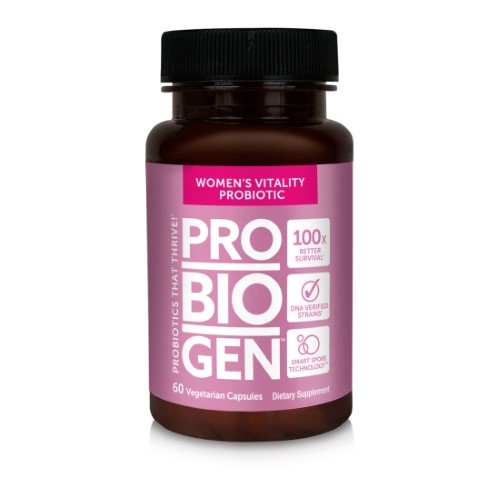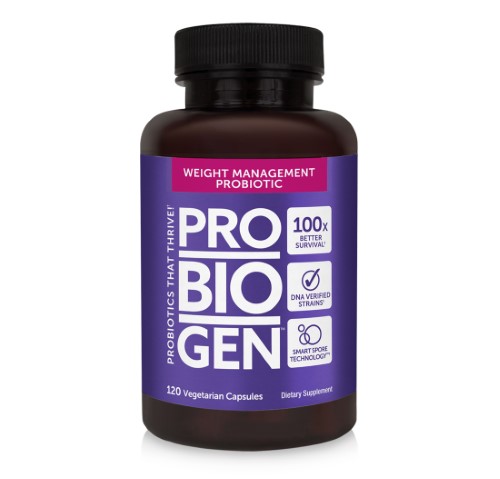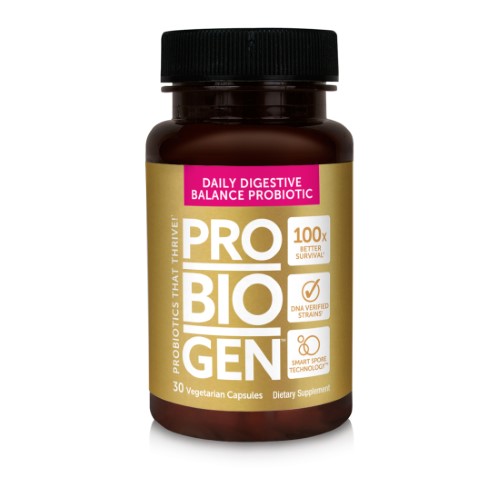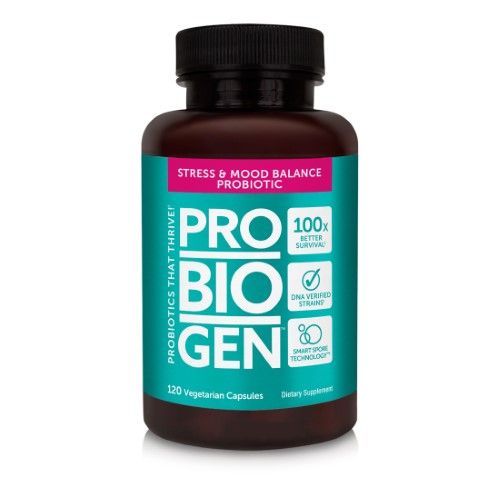Beauty Inside & Out | Honoring Your Microbiome + An informative Chat with A MICROBIOLOGIST
Even though we love beauty products and the latest beauty treatment at ROSE & IVY, we know that real beauty cannot be achieved in a bottle or a swipe of the newest shade of red lipstick. Rather, beauty is being your true, authentic self and sharing that with the world. Since beauty comes from the inside, we segue to a conversation about physical health, more importantly one that pertains to the gut. About a year ago, I began reading and researching information about the state of my microbiome. It dawned on me that I personally wasn't doing everything I could to make sure my good bacteria was flourishing, especially since I have an autoimmune disease. We live in a world that is combatting us with things we aren't even aware of - even when eating a clean diet, there are many other environmental factors that can cause an imbalance.
Today we have the wonderful opportunity to discuss all things gut health with Kiran Krishnan, Microbiologist and a Scientific Advisor for Probiogen, a new range of probiotics that work differently than your typical run of the mill pill. He separates the good from the bad and how minor tweaks can result in a world of change, no refrigeration required.
You compare the gut to a flourishing garden that is constantly being assaulted. What would you say are the biggest perpetrators?
In our modern daily lives, the biggest assaults on our flourishing garden come from preservatives in processed foods, chlorine in our drinking water, antibiotic use, antibiotics in meat products, pesticides on fruits and vegetables, pesticides and chemicals on our lawn, non-nutritious processed foods, sugar and harmful chemicals in personal care products.
What differs a healthy gut from an unhealthy one?
The biggest difference across all ages, cultures and populations is the diversity of the gut microbiome. Studies have confirmed that a diverse microbiome is a far healthier microbiome and thus a far healthier host - us. Even in studies on people that suffer from chronic sinus infections, when you compare the sinus cavities of people with chronic sinus infections compared to people that suffer very few if any, the one difference they find is the people with chronic sinus infections have low diversity of microbes in their sinus cavities. You would think having less bacteria is good, but in fact, having less diversity and less bacteria is a bad thing and leads to chronic infections. Studies have also confirmed that having less diversity in your microbiome/gut drastically increases your risk for diseases like diabetes, obesity, anxiety, depression, heart disease, inflammatory bowel disease, atopic dermatitis and even psoriasis.
Studies show that the vast majority of products tested do not meet the label claim, meaning that what the companies claim on the label as the strains in the product are not actually the strains found in the capsules.
It can be like finding a needle in a haystack when searching for a probiotic from strains to dosages (16 million, 32 billion) to things like refrigeration. What are the most common misperceptions about probiotics on the market today?
Here are the most common misconceptions about probiotics:
1) More is better - i.e. more strains and higher dose is better. In fact, there are no studies that show that 20 billion is better than 10 billion or 50 billion is better than 20 billion. Unfortunately those are marketing tricks and huge scientific assumptions. Most probiotic studies are done on a single strain at doses around 5-7 billion CFUs per day.
2) The refrigerated probiotics are better - I hear this all the time but it is completely false. If the strains cannot survive at room temp on the shelf and thus have to be refrigerated to maintain viability, how will they survive 98 degrees and a pH of 1 (very acid) in the body? The companies that support refrigeration have never been able to answer that question effectively.
3) Probiotics survive and go and live in your gut - this is a big assumption. Large scale studies on the most common probiotic strains on the market have shown that 95% or more of probiotic products do not contain strains that can survive the passage through the stomach acid, then bile salts and pancreatic enzymes to get to the site of action and colonize there. So it can be estimated that over 90% over the money being spend on most probiotics are going towards buying and taking in a bunch of dead bacteria. It becomes extremely important to look for products that have verified, by a 3rd party lab, that their probiotic survives gastric passage. This survivability is critical to the function of a probiotic. People should not be spending their hard earned money on dead bacteria.
4) What’s on the label is in the capsule - This may be the scariest part of shopping for probiotics. Studies show that the vast majority of products tested do not meet the label claim, meaning that what the companies claim on the label as the strains in the product are not actually the strains found in the capsules. A University of California study published in 2015 showed that 15 out of 16 retail probiotic products that the University tested had completely different strains in the capsules than what was claimed on the label. This means you have no idea what you are taking. Not only does this mean the product likely won’t be beneficial, but it could even be harmful. Thus it becomes extremely important to use a probiotic from a company that actually has its finished product DNA tested and verified by a 3rd party lab. This type of DNA sequence verification is the only way for the consumer and the company producing the product to know that what they are claiming on the label is actually in the capsules.
5) Fermented products like yogurts, kombucha and kefir are good sources of probiotics - Although those products (assuming they don’t have a bunch of sugar and flavorings) can be good for your gut, they are not a source of probiotic bacteria. The microbes used to make those products are microbes designed to ferment diary proteins and sugars in a factory environment. They are not designed to survive the stomach and colonize in the gut. So these fermented foods are not a source of probiotics. if you are drinking a kombucha daily, you will still need a true and effective probiotic to help defend your gut from the daily assault that is a result of living in the western world.
The old idea of "you are what you eat" is better understood as "you are what you absorb".
If you live a life of moderation (stress management, whole foods, exercise, etc) and take a probiotic can you achieve optimal gut health?
Assuming the probiotic you are taking is an effective, true probiotic, then yes. However, there is one caveat, that you are eating a diverse diet. One thing that really impacts the health and diversity of your microbiome is the diversity in your diet. Our ancestors ate 400-600 different types of foods annually as hunters, gatherers and foragers; a typical western diet contains around 15-20 different foods. Usually 4-5 common fruits, 4-5 typical vegetables, 2-3 common sources of protein and 2-3 common sources of fibers. The diversity of our microbiome and thus the ability to get to optimal gut health depends heavily on the diversity of our diet. We need to eat a little bit of a lot of things.
Once someone begins a probiotic regimen, how long until symptoms like allergies, anxiety or other issues can start to be alleviated?
If they are taking an effective probiotic, it can be as soon as 3-4 weeks for typical digestive issues and 1-2 months for immune and mood issues. This is of course assuming that they are attempting to make some lifestyle improvements as well like eating whole, clean foods, exercise, reducing unnatural personal care products, reducing sugar, etc.
How does taking a probiotic help to create beauty from the inside out?
Your skin is a reflection of the health of your insides and the health of your insides are largely determined by the health of your digestive tract; thus beautiful skin, hair and nails starts with a healthy gut. There are some key mechanisms to highlight here:
1) The old idea of "you are what you eat" is better understood as "you are what you absorb". Healthy skin, hair and nails requires adequate nutrition, antioxidants and hydration. The absorption and assimilation of these nutrients are completely dependent on the health of your intestinal tract and the ability of your digestive system to breakdown foods and acquire the nutrients from them. We do this very poorly and an effective probiotic goes a long way to assisting the body in the digestion of foods and the absorption of nutrients.
2) Inflammation is a big driver of poor skin health, weak hair and weak and brittle nails - this inflammation starts in the gut. An effective probiotic can play a critical role in reducing gut inflammation and thus systemic inflammation.
3) Hormone balance - having balanced hormone production is a major factor in how you look and how you feel. The pregnancy "glow" where skin and hair looks amazing during pregnancy comes from increased production of certain hormones. A healthy gut plays a significant role in hormone balancing and an effective probiotic is a critical part of a healthy gut.
4) Oxidative stress - oxidation is a major driver of poor and unhealthy looking skin, this oxidative stress comes from within. A healthy gut plays a critical role in stopping metabolic oxidative stress from improved nutrient absorption to decreasing inflammation, an effective probiotic plays a key role in this protective process.
5) Dysfunctional immune systems can lead to numerous skin conditions such as acne, rosacea, atopic dermatitis, psoriasis, eczema, etc. All these conditions negatively affect the health and appearance of the skin. These conditions and the immune dysfunctions that cause them start in the gut. An effective probiotic can be a big help in improving the health of the gut which supports a healthier outcome with these conditions.
Photography by Alison
*We believe that health is wealth at ROSE & IVY. Before taking any new vitamins it is best to have a chat with your doctor to make sure that it is right for you!







